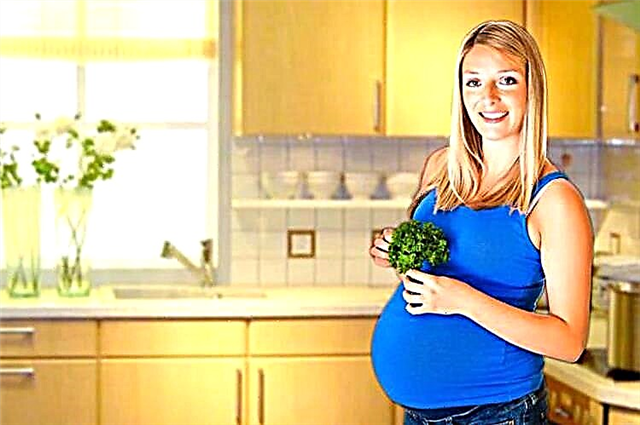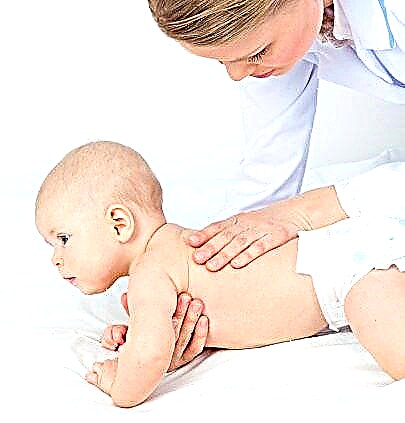Breastfeeding whenever possible is preferable for optimal baby development. A rich and varied diet, including a balanced amount of vegetable and animal proteins, fats, vegetables, has a beneficial effect on the health of the mother and indirectly on the quality of milk. Fruit is another valuable ally in keeping mom and baby healthy. What fruits can a nursing mother of a newborn eat, and which should I refrain from?

Breastfeeding mother eating an apple
Benefits of fruits for the nutrition of a nursing mother
During pregnancy, the intrauterine development of the child was supported by maternal resources. The milk produced during lactation also contains useful substances that come from the mother's body.
Important! In order to maintain her own health, which will have a beneficial effect on lactation, the mother should consume fruits and berries that contain vitamins and trace elements.
They, for example, contain:
- iron to increase hemoglobin;
- magnesium and potassium to support heart muscle function;
- folic acid to improve blood circulation;
- phosphorus to aid vision;
- pectin to lower cholesterol and normalize digestion;
- beta-carotene and vitamin C to strengthen the immune system.
Effect on lactation
During lactation, it is necessary to maintain a sufficient amount of fluid in the body. Juicy fruits do a great job with this.
Especially useful for lactating watermelon, which consists mainly of water. Green papaya increases production of the hormone oxytocin, which affects milk production, but it is exotic in Russia.
A nursing mother can eat dried fruit compote, which, in addition to liquid, contains valuable trace elements.

Dried fruits compote
Important! It is advisable to have dried fruits for compote cooked by yourself. Store-bought items contain many chemical preservatives.
Influence on the child
Vitamins that enter the mother's body will also get into breast milk. Therefore, the child will receive nutrition rich in vitamins.
Studies have found that babies whose mothers regularly ate fruit while breastfeeding get used to it much faster when they start to eat it as complementary foods and eat more than bottle-fed babies.
How to choose the right fruit
Not all fruits are created equal. When choosing them, you need to focus on the region where the mother lives, and on the seasonality.
Seasonality
The fruits that are consumed during the natural ripening season contain the maximum benefit and taste. If you use them for food out of season, then they must either be stored for a long time or brought from afar. Both are not suitable for proper nutrition for nursing mothers.
Home
A nursing mother should eat homemade fruits that is, growing in the region of her residence, for the following reasons:
- Homemade fruits are familiar from childhood, and the mother's body calmly accepts and digests them;
- In order to bring fruits from afar, while maintaining their presentation, it is necessary to process them with chemicals.
What fruits are suitable for the first months
In the first months of a nursing baby's life, mothers need to be especially careful. What kind of fruit can a nursing mother of a newborn baby in the first month be determined by their properties.
Useful
- Apples. Better to start with green varieties. If they are sour, then you can bake the apples in the oven. So they will retain their beneficial properties and will not cause negative reactions in mom and baby;

Baked apples
- Pears. These fruits contain a lot of fiber and sometimes cause stomach discomfort, so they are often consumed 2-3 months after starting breastfeeding;
- Plums. Fruit with a mild laxative effect is recommended for stool problems;
- White cherries. Should be consumed during the ripening season (May to July);
- Blueberries, red and black currants, gooseberries are rich in antioxidants, vitamins and minerals;
- Apricots. Rich in potassium. Local varieties are also recommended in small quantities.
Consume with care
This group includes fruits allowed for use, but with some restrictions:
- Bananas. These are healthy fruits that contain a lot of potassium and vitamin E, but sometimes they can provoke allergies. Cautious use - no more than 2 pieces per day;
- Melon watermelon. Chemicals are often used for their early ripening, so it's better to start trying watermelons in August;
- Grapes. May cause gas formation. It is consumed in small quantities;
- Peaches. They are capable of provoking allergic reactions. In the first month, it is better to refrain from using;
- Persimmon, pomegranate. Can be introduced into the diet with caution in the 3rd month of feeding.
Not recommended to consume
Fruits that are likely to cause allergies or may contain harmful chemicals not recommended for use in food:
- Citrus. They are highly allergenic. Sour fruits impair the taste of milk;
- Strawberries, raspberries, sea buckthorn, strawberries, in addition to the ability to provoke an allergic reaction, can cause indigestion;
- Exotic fruits (pineapple, kiwi, mango, etc.).

Exotic fruits
An authoritative specialist, Dr. E. Komarovsky, advises not to adhere to strict diets for nursing mothers.
Important! The main principle is to avoid foods that impair the taste and smell of milk (sour fruits, bitter vegetables, etc.) and strong allergens (citrus fruits, red berries, etc.).
Correct fruit consumption
Nursing mothers need to adhere to the following rules when using fruits and berries in food:
- Wash thoroughly before use;
- You can not eat fruits in large quantities and several types. You can eat a certain type of fruit one in 3 days;
- If the fruit is large, it is better to divide it in half or smaller and eat one part;
- When baked, the fruits reduce their allergic properties and have a more delicate taste and texture. Therefore, it is recommended to eat baked fruits;
- Freezing is the best way to preserve the berries for use at the end of the season.

Frozen berries
Assessing the child's reaction
- The mother should taste the fetus from morning to lunchtime, so she will have enough time to assess the child's reaction;
- If a child has allergic manifestations or colic, then this fruit should not be eaten for 3-4 weeks. After this period, you can try a second introduction to the diet of this fruit;
- The norm of fruit consumption by the mother in the absence of negative reactions of the baby is up to 300 g daily.
Avoiding fruit
In case of severe allergic reactions of an infant, it is recommended to refuse to eat a particular fruit.
Allergy symptoms
The most common allergic manifestations in an infant:
- skin rashes;
- difficulty breathing;
- diarrhea;
- vomiting, abdominal pain.
Fruits and vegetables are important ingredients in a nursing mother's diet. However, you need to use them, observing the measure, the rules and carefully monitoring the baby's reaction.



